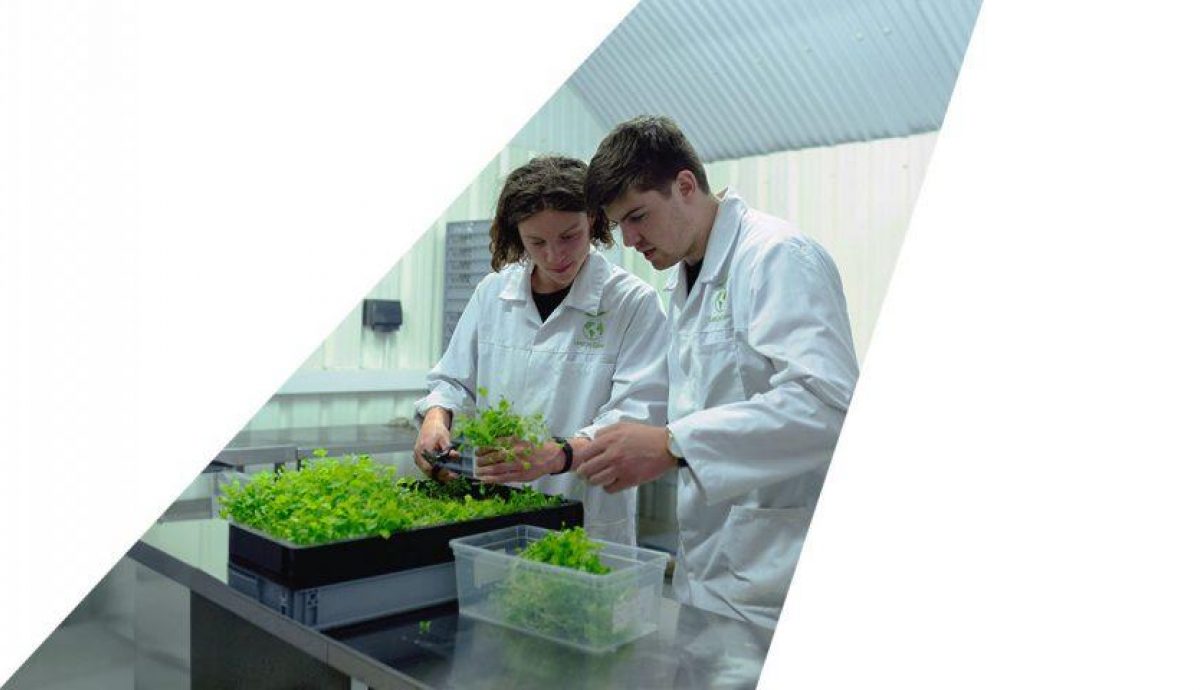A Sustainable Future Begins in the Science Classroom
Learn more about how to bring agriculture into the science classroom!

Over on our Food and Agriculture Center for Science Education platform, check out our five-part blog series!
In this blog series, we will explore how we might contextualize sustainability through food systems and agriculture in tangible and meaningful ways that engage all learners in the science classroom. We ask, what would a more sustainable future look like if it started with you or in your community?
Here is a sneak peek from blog #2:
The role of sciences, especially biology, as part of an agricultural education program seems to have been universally recognized for at least a few decades. However, agricultural contexts are not as often integrated into science education programs as other contexts such as healthcare or conservation. Agricultural examples of chemistry, physics, and environmental sciences could be effective means for introducing important scientific concepts, but the integration of these principles is dependent upon the ability of the educator to recognize their applicability and then integrate them into the scope and sequence of their district’s curriculum.
Our current educational landscape presents a stark contradiction, as a recent survey from the National 4-H Council reveals a glaring gap between the perceived importance of agricultural science and its integration into high school science curricula.
Astonishingly, over 80 percent of surveyed high school science teachers acknowledge the significance of agricultural science, yet just 22 percent incorporate it into their lesson plans.
The survey further sheds light on the disconcerting reality that fewer than half of the teachers feel adequately qualified or supported to teach agri-science.
Digging deeper, the survey highlights a troubling disconnect between the perceived importance of agricultural careers and the actual pursuit of such careers by high school students. While 86 percent of parents agree on the importance of encouraging careers in the agricultural industries for the country's future success, nearly 70 percent do not believe their children will pursue a career in agri-science. This contradiction is further underscored by data from the United States Department of Agriculture, revealing thousands of unfilled jobs in agriculture annually (Science and Engineering, 2020-2025), a topic we will explore a bit more thoroughly in later posts. Dr. Mae Jemison, Chief Ambassador for Bayer’s Making Science Make Sense initiative, emphasizes that this data mirrors a broader challenge in STEM education and careers, urging the need for new generations of STEM-literate leaders equipped to address the pressing challenges facing humanity such as food security (Are we preparing the next generation for tomorrow's global challenges? new study suggests we have work to do. 2018). If we are to cultivate innovative solutions for issues like nutrition and health needs amid a growing population, a paradigm shift in STEM education is imperative.
***
You can check out the full blog series here!
Learn more about how a sustainable future begins in the science classroom! Register now for a one-hour webinar on Tuesday, May 14th at 7 PM EST.









